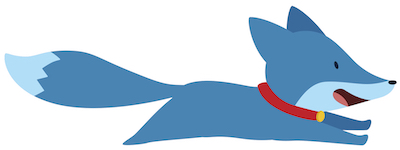What Does a Front-End Developer Do?
Written by iHeartRemoteWork
•Updated on
A front-end developer constructs the visible and interactive part of websites and web applications, known as the front-end.

A front-end developer creates a website by designing and coding its user interface, incorporating HTML, CSS, and JavaScript to structure content, style elements, and enable interactivity for users.
What is the difference between a front-end developer and a back-end developer ?
Back-end developers are responsible for developing and maintaining parts of a website or application that are not directly visible to users such as data storage, security measures, and site performance.
What does a front-end developer do?
Front-end developers create user interfaces. The UI, or user interface, serves as the visual design of an application, defining the functionality and appearance of each element within a website or application. A developer must pay close attention to details and fully understand how the platform works to create captivating, and polished user interfaces.
Front-end developer job description
An individual or company wanting to build a website may seek to hire a front-end developer to create the layout of the site. The front-end developer is responsible for deciding the placement of images, determining the appearance of the navigation, and figuring out how to present the site. A significant portion of their tasks revolves around making sure that the site or application's appearance and layout are user-friendly and intuitive.
Professional Acccelerated Skills Training Program
Front-end Developer
Launch your career as a front-end developer. Build job-ready skills for an in-demand career and earn a credential from iHeartRemoteWork. No degree or prior experience required to get started.
Average time: 9 month(s)
Instructor-led courses or learn at your own pace
Skills you'll build:
JavaScript, React, Angular, HTML, Cascading Style Sheets (CSS), UI/UX design, Git, Github integration
Where do front-end developers work?
The versatility and demand for this role open up numerous career prospects in diverse industries and locations. Whether it involves collaborating with a non-profit organization, launching your independent freelance venture, or serving as an in-house developer for a company, you're likely to encounter opportunities that align with your interests.
Remote developer employment
The job's significant reliance on computers also opens up numerous chances for remote work. Being a front-end developer allows individuals to collaborate with companies nationwide or worldwide, all from the convenience of their home.
How to become a front-end developer
Engaging in a profession as a front-end web developer provides an outlet for showcasing creativity and honing problem-solving abilities. Given its dynamic nature that continually integrates new technologies, front-end development proves rewarding for individuals inclined toward continuous learning and overcoming challenges. The following sections outline key skills essential for front-end developers
HTML, CSS, and JavaScript
These three languages are essential to anyone who wants to work in front-end development.
HTML (hypertext markup language): It is the most basic building block of the Web. It defines the meaning and structure of web content.
CSS (cascading style sheets): The language used to style and layout web pages — for example, to alter the font, color, size, and spacing of your content, split it into multiple columns, or add animations and other decorative features.
JavaScript: A programming language used for adding interactivity and dynamic content to websites.
HTML, CSS, and JavaScript are used together to develop the page appearance and functionality of the web page.
How to get started: If you want to learn HTML, JavaScript, and CSS, you may want to enroll in a instructor-led course like the Front-End Web Development Acccelerated Skills Training Program. You will acquire the essential knowledge required to launch a career in web development and receive a reference from iHeartRemoteWork to enhance your resume, and validate your skills with a technical recruiter.
Frameworks
Learning JavaScript frameworks enhances a developer's productivity, as it allows them to leverage existing tools and libraries, reducing the need to reinvent the wheel. Moreover, proficiency in popular frameworks such as React, Angular, or Vue.js is often sought after by employers, making it a valuable skill in the competitive field of web development
Developer tools and software
Essential for software development is tools like version control, which monitors and manages alterations in your source code, enabling you to modify your code without commencing from the beginning. Proficiency in employing diverse software development tools constitutes a foundational element for a prosperous career.
Workplace Skills
Apart from knowing the technical side of how a website works, having certain non-technical or soft skills can make you a stronger candidate to become a front-end developer. Here are a few important ones to remember:
Creativity
Problem-solving skills
Written and verbal communication skills
Teamwork